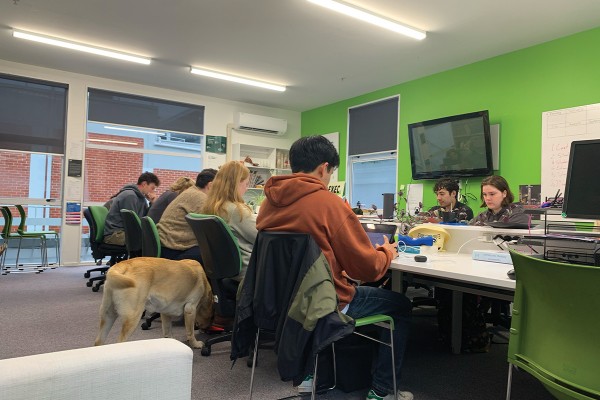OUSA’s proposed Student Charter was finally approved at last week’s Exec meeting, birthing it into the wonderful world of policy and bureaucracy. The charter outlines key issues and priorities that students are facing in Dunedin – unfortunately lowering the price of butter did not make the cut this time round.
A charter is a formal document that outlines a list of priorities and purposes for a group. In OUSA’s case, they are here to advocate and support Otago University students (and be the brains behind $4 lunch). The Exec created the policies that could help improve the student experience, with consultation from the Politics Students’ Association (POLSA).
The policies in the charter are ranked by priority. Fortunately OUSA knows where students’ interests lie – point number one of the charter is securing a student bar. Rental warrant of fitness, a map of safe walking routes at night, and a council-ran ‘social harm reduction’ grant are among other policies listed.
Rounding out the list are policies such as advocating for reinstatement of the tertiary precinct planning group; completing the Albany Street Pedestrian and Cycle Link; supporting the development of a ‘Dunedin Sound’ music festival; establishing general emergency housing for students; securing a direct student airport bus service; and supporting the return of the Southern Passenger Rail service. Surely an RnV equivalent lands in Dunners soon?
The charter ties in well with both the upcoming Politics Week and Local Body Elections which will be held later in the semester. The priorities laid out in the charter creates a criteria of what OUSA (and tauira) want to see from ideal candidates.
The question of Political-Rep Jett’s conflict of interest for his well publicised run for Council did not escape the charter conversation at last week’s meeting. President Liam opened up a “can of worms”, as he put it, pointing out that Jett did have some part in shaping the student charter. This created concerns for some members of the Exec because many of these policies are potential campaign points for Jett to run on, taking away from OUSA’s neutrality as he is a Labour Party endorsed candidate.
Liam said that he had a lengthy conversation with someone who had concerns about Jett running on the student charter. Liam and Postgrad Rep Josh pointed out that the charter was made as a collaboration, and that Jett’s contribution was primarily the airport bus policy. Academic Rep Stella had issues with this and was “disappointed” in how the conflict wasn’t managed earlier seeing as this could be perceived as early campaign work. Daniel reckoned she had a fair point, but didn’t think anything could be done at this stage.
OUSA CEO Debbie had one small note, flagging point number four, a Dunedin City Council Social Harm Reduction Grant, as being unlikely but high priority. Overall though, the table consensus was that they were comfortable with the charter proceeding. “Putting it out to the world for students to consume and candidates to live by,” said Liam as the motion to endorse was passed.
Finance and Strategy Rep Daniel said that the student charter ties into all of the things happening in Politics Week. He explained to Critic that OUSA will also be creating a voting magazine, ranking every candidate on how ‘student-friendly’ they are based on these student charter priorities. (Way to rip off Critic much?) Daniel added, “Students should go and vote and exercise their democratic rights [for the upcoming elections].”
Politics Week will run from the 8th to the 13th of September, while voting for Local Body Elections closes on October the 11th. Check up on your POLS-major friends to make sure they’re not frothing at the mouth by then.






